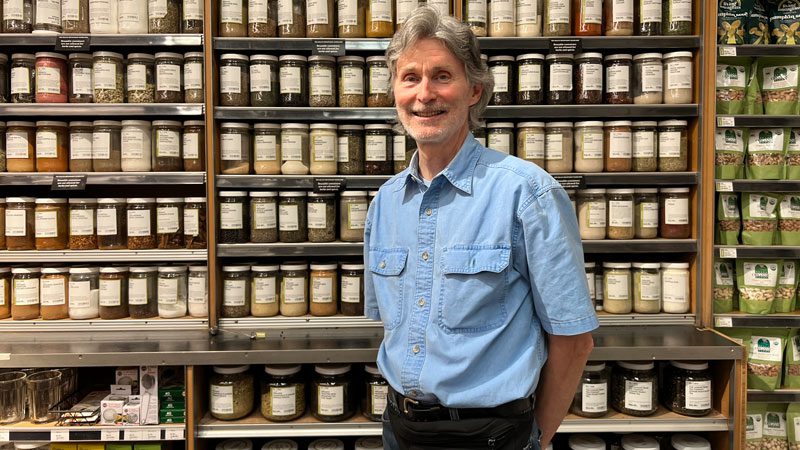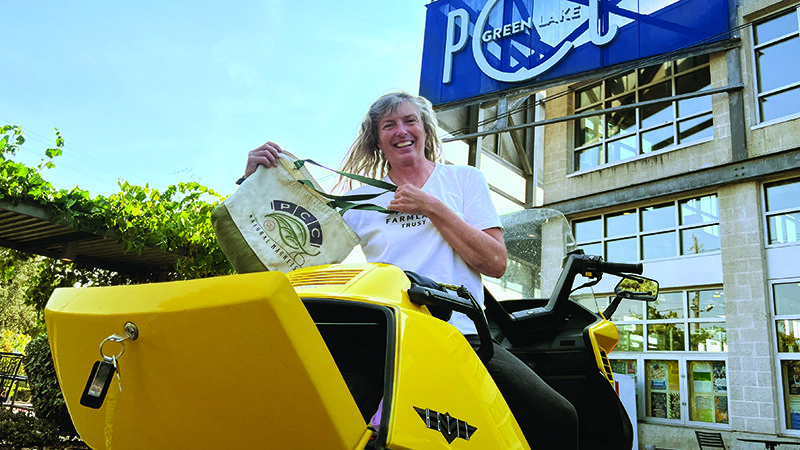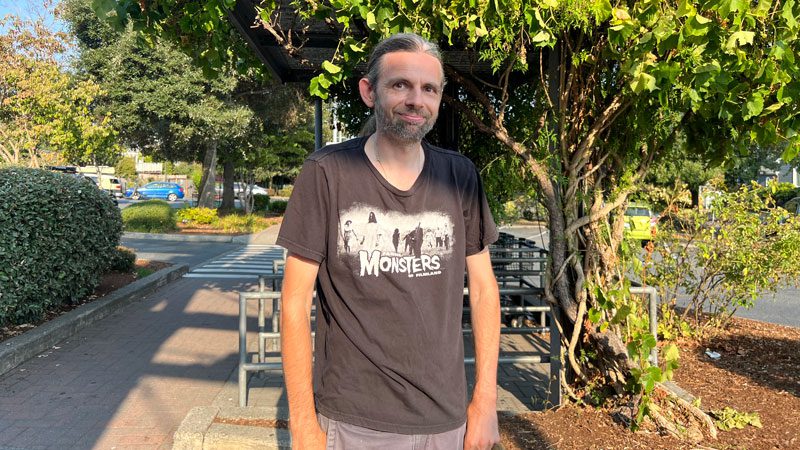More Than a Grocery Store: Member Stories at PCC
October is Member Month at PCC! Look here for special member discounts and events, and join up here if you’re not already among the co-op’s 120,000+ member-owners.
Now celebrating its 72nd year serving the community, PCC values its new members, people who joined up decades ago, and everyone in between. Here are profiles of a just a few we recently spoke with. Other profiles are online at this Community Tables page, including some timely Friendsgiving recipes from a member family.

Meet PCC member David Fries
David Fries always leaned toward healthy eating, but he found PCC through work rather than shopping. An electrician living in Sumner at the time, a contractor asked him for help on a Seattle job: remodeling the former Ravenna PCC store.
That led to many years working on PCC stores around his usual residential jobs. “They were run sort of like a mom and pop grocery store” at the time, he said. The work also led to a lasting connection as a PCC member and shopper.
“I had always been interested in diet and health, because I had a chronic skin condition and gave up on allopathic medicine in my early 20s,” Fries said. He had started buying food at health food shops in the 1970s and worked at a now-closed Wallingford co-op when he moved to north Seattle in the 1980s. He shopped at the original Green Lake PCC store on Linden Avenue – where he installed some of the co-op’s first computer cables. Organics is a focus of his shopping, as well as vegetarian and gluten-free cooking.
“People’s biggest objection to the PCC is that it’s expensive. And I ask them, well, what do you think of the cost of health care? How long do you intend to live? Do you intend to be healthy into old age? To me, the little premium that we might spend…means that we don’t spend that on doctors and medications.”
Fries retired as the COVID-19 pandemic hit and regularly visits his neighborhood Green Lake Aurora shop, where he’s on a first name basis with staff, or the Issaquah PCC after a hike with his daughter, or a Ballard stop when they’re shopping in that area. “One of my goals with her is to go in and try the lunch at the downtown store.” His neighborhood store especially feels like a true community.
“I get to know the people in the meat department and ask them for suggestions. I ask the produce people, “What orange do you like? What’s your favorite apple this week?”
“I think PCC has always satisfied my desire to buy food from people who are conscious of the planet and health.”

Meet PCC member Bria Hedahl
Bria Hedahl jokes that her resume has two parts: A small section with her official career, and then a long, long list of all the nonprofits where she’s volunteered.
A now-retired bus driver with King County Metro, Hedahl’s focus is all on a more sustainable planet. Her long PCC membership was right in line with her other passions.
Hedahl’s family settled in the Seattle area in the early 1960s, after her father’s retirement from the Marine Corps. “I grew up in Lake Forest Park. I had a horse in my backyard, it was like (that) way back when!” Interstate 5 ended at 145th street then, and what is now the Burke Gilman trail was still a railroad corridor. After the trail was dedicated for public use in 1978, Hedahl would lead volunteer crews pulling blackberries and cultivating native plantings on the path.
She was an early volunteer with Seattle Tilth’s Master Composting program, which helped make Seattle an early leader in home composting, and as a Master Gardener in Snohomish County. She volunteered with the PCC Farmland Trust, now the Washington Farmland Trust, and was a Green Seattle steward.
She loved working outdoors, and keenly feels the need for environmental volunteers. “I do it for the Earth,” she said.
A PCC member for decades, she shops for food only at co-ops – often at the Edmonds PCC, near where she lives. Her favorite items include goat milk, and she tries to avoid white flour, sugar, and plastic packaging.
“I’m just whittling it down to the point where I say, OK, I’m doing what I can,” she said.
Whenever she sees food advertised online, she asks “Is it organic? Is it local?”
“I want somebody to say to themselves, when you walk in and put something in your mouth, where is that food coming from? And how does it help this planet that we can live on?”

Meet PCC member Noah Crissey
Noah Crissey stops at PCC’s Green Lake Aurora store several times a week.
He’s a dedicated co-op shopper – but he has another reason for the regular visits. He’s also the neighborhood mail carrier. The store is in the middle of his route, convenient for lunch, but he said he’d be a regular anyway, since the co-op carries foods that fit with how his family wants to eat.
“There are a lot of ingredients that I try to avoid, and all kinds of processed foods that we know are not good for you,” he said. He started with a small list of ingredients to stay away from, but it keeps growing as he finds out more about issues with the modern food system.
Crissey looks for organic and non-GMO foods, and avoids seed oils in favor of fats like butter or ghee or olive oil. Even if foods are organic, he noted, it’s important to look into how they are made. Avoiding ingredients treated with glyphosates is a priority.
Crissey cooks a lot at home, where he lives with his wife, their 12-year-old daughter, and his mother-in-law, who enjoys gardening. Another PCC fan in the family: His daughter’s pet bunny, who appreciates the produce.
While work takes Crissey to the co-op, he chose to join as a member as well, saying the member discounts alone paid for themselves long ago. “You just pay the one time and then you’re a member forever.”
